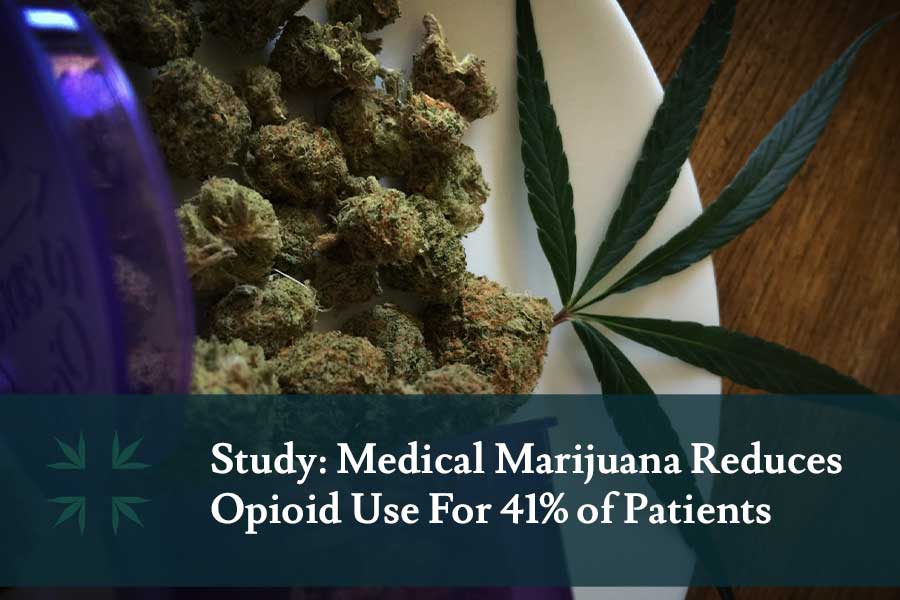At a precarious time when the opioid epidemic is ravaging throughout the country, medical cannabis is gaining acceptance in the medical community as an alternative to addictive opioids. A new study published in the Journal of Clinical Oncology titled “Opioid dose reduction and pain control with medical cannabis” adds to the growing evidence that cannabis reduces opioid abuse, hospitalizations, and overdose deaths.
Medical Cannabis Reduces Opioid Dose Intake
In the study, a team of oncologists from Kymera Independent Physicians found that medical cannabis was effective in managing pain and reducing opioid use intake. Oncologists studied the effects of medical cannabis on 133 patients (65 male and 68 female) between the ages of 20 and 84 (median age of 53). The results showed that 41% of the patients reduced their opioid use after taking cannabis for at least one month.
Cancer Patients Experience Significant Relief
Of the patients, 19% were diagnosed with some type of cancer. Of these cancer patients, 80% self-reported improved pain scores on a graded pain scale. Of non-cancer patients, a similar percentage experienced lowered their pain levels. 75% of non-cancer patients experienced pain relief with medical cannabis.
Opioid Dose Reduction In Cancer and Non-Cancer Patients
In general, patients responded positively to medical cannabis to improve their quality of life. A reduction in opioid use intake is crucial in preventing abuse, addiction, or worse, an overdose. The study found that of the participants that reduced their opioid intake with cannabis, 63% had a 25% opioid dose reduction. 37% of patients taking cannabis had a 26% or more drop in opioid intake.
Cancer patients experienced the most notable benefits from cannabis at reducing their opioid use. Researchers found that 73% of cancer patients achieved a 25% opioid dose reduction to treat their painful symptoms.
Mental Health And NSAID Use
Surprisingly, the team of researchers also found a correlation between a patient’s mental health and their ability to reduce their opioid use. 32% of patients with active depression were able to reduce their opioid intake compared to 68% of individuals that didn’t have depression.
NSAID use was a positive factor that helped patients reduce opioid use. According to the study, “co-adjuvant NSAIDs with medical cannabis improved pain score in 67% of all cases vs. 33% among non-NSAID cohort.”
Opioids are a commonly prescribed treatment for pain management, but their use has been linked to a high risk of abuse and overdose. For many medical patients, opioids are not worth the side effects and risks. The study offers scientists and medical patients more evidence that suggests medical marijuana can significantly reduce neuropathic and nociceptive pain for all.

Leave A Comment